This one-day conference, organised by the West European Studies Library and Information Network (WESLINE), aimed to review the state of modern languages teaching and learning in the UK now and in the future, and explore innovative ways in which researchers and librarians could work together to support learning, teaching and research in modern languages.
Marion Loire, Head Librarian at the Institut français, welcomed us to their elegant building in South Kensington. Janet Zmroczek, Head of European and Americas Collections at the British Library, gave an introduction to the first panel on ‘The future of languages in the UK: advocacy, policy making, teaching and learning.’ She noted what a unique opportunity the conference was to gather together librarians, educators and students from different backgrounds to share experiences and insight.
Nicola McLelland, Professor of German and History of Linguistics at the University of Nottingham, commenced the first session with an overview of the history of language teaching and learning in Britain. We learnt that concerns about the state of languages in the UK are not new; characterised as ‘100 years of worrying’ since the 1918 Leathes Report! However, there is a real concern about the downgrading of languages at school level. Student numbers are down compared with the 1960s and 1980s, and Nicola made a strong case for a national languages strategy in England. Click on the image below to take a look at Nicola’s presentation for more detail:
Nick Mair, Director of Languages at Dulwich College, spoke about language learning in secondary schools with a particular focus on changes over time to the A-level syllabus. The top three issues putting students off from taking languages at A-level were i) severe grading compared with other subjects; ii) lower percentage of students gaining A* required for competitive university places; and iii) unpredictable marking. Interestingly, due to the way that the exams are graded, language A-levels have a unique problem with native speakers skewing results – which helps lead to some of the issues outlined above. See Nick’s presentation for more details:
Claire Gorrara, Professor of French at the University of Cardiff and Chair of the University Council of Modern Languages, gave a powerful presentation on language activism and advocacy. Language is a political issue and could be linked to social advantage/disadvantage. Despite the rhetoric of UK monolingualism, we are a multilingual group of nations both historically and currently and we should capitalise on this. Claire felt it was important to make the case for all languages (dropping the usual ‘modern’ and/or ‘foreign’), and to collaborate rather than compete when it came to lobbying for languages. See the full presentation here:
To round off the first session, Neil Kenny – Lead Fellow for Languages at the British Academy, and Professor of French at the University of Oxford – drew attention to a number of reports which call for the government to create a national languages strategy. [More detail at https://www.thebritishacademy.ac.uk/publications/british-academy-review/35/language-learning] He proposed the creation of an umbrella portal to gather together information about languages in one place, helping to stimulate links between different groups and making it easier to forge connections. Languages need a high-visibility platform and strategic coordination from government in order to tackle the current crisis.
In the Q&A session, all four speakers highlighted the importance of learning languages not just as a key communications skill, but as a way of accessing a different mindset and opening yourself up to other cultures and communities. Although economic arguments in favour of languages are common, these are rarely the reasons that motivate us to learn a new language. Language learning opens a door to new experiences and ways of seeing and understanding the world around us, and people in the UK should have opportunities to embrace this at any stage of life, not just through formal education.

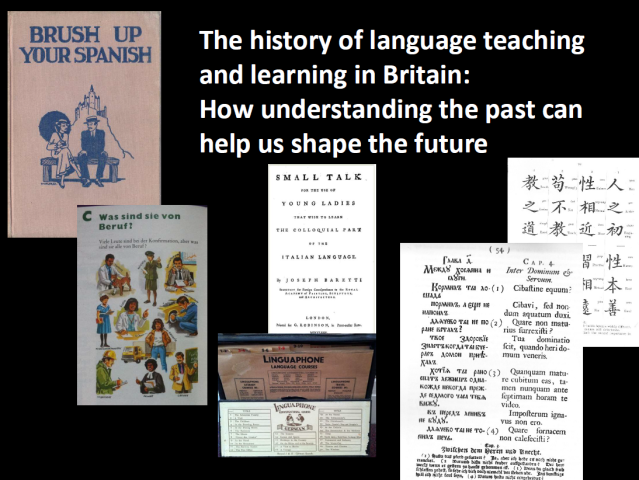
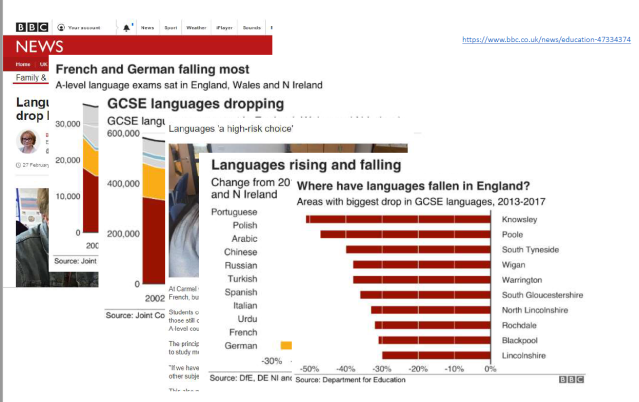
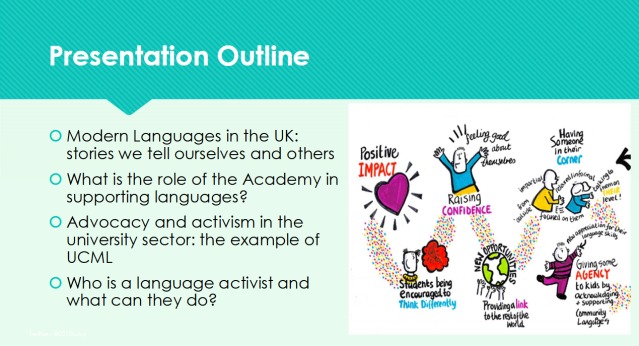
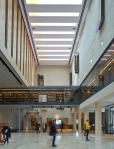
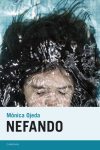
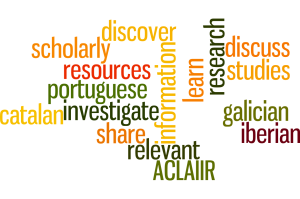

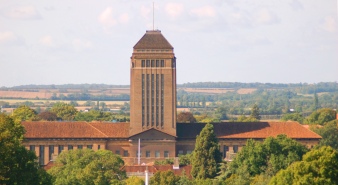
 Please note the change of date for the ACLAIIR AGM! Due to clashes with other events, the AGM & Seminar will now be held on Monday 27th June in Cambridge. The theme will be Digital Humanities – details tbc, so watch this space.
Please note the change of date for the ACLAIIR AGM! Due to clashes with other events, the AGM & Seminar will now be held on Monday 27th June in Cambridge. The theme will be Digital Humanities – details tbc, so watch this space.
You must be logged in to post a comment.